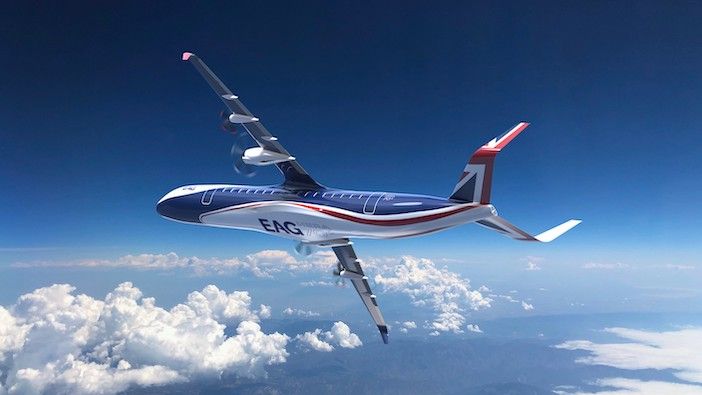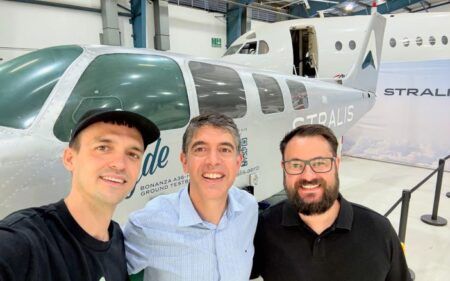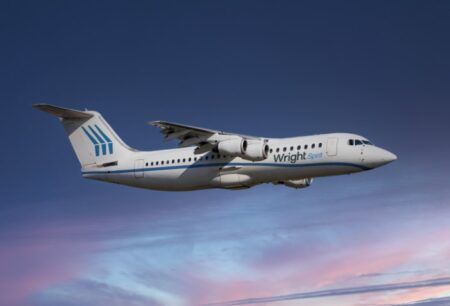A UK-based company developing an electric regional aircraft is partnering with researchers at the University of Nottingham to develop its electric propulsion system.
The Electric Aviation Group (EAG) and the University of Nottingham (UoN) are to form a joint venture (JV) company called Hydrogen Hybrid Electric Propulsion Systems (H2EPS), which will develop and commercialize kW and MW -class electric propulsion systems.
The propulsion systems, which will use superconducting and non-superconducting technology, will also be suitable for use in non-aerospace applications.
H2EPS will initially focus on developing a 2MW electric propulsion systems for use in hybrid, all-electric and hydrogen-electric aircraft.
EAG is developing the H2ERA, a zero emission, a 90-seater regional aircraft with a hybrid hydrogen-electric powertrain. Development of H2ERA began in 2017 and the company plans to fly a demonstrator in 2026 and enter for the H2ERA to enter service in 2030.
EAG recently signed an agreement with engineering consultants Atkins to support the aircraft’s development.
The new company H2EPS will combine EAG’s aircraft program and business leadership with the UoN’s capabilities and IP in areas such as power electronics and electrical machines for aerospace applications. Researchers at the University have previously demonstrated aircraft propulsion drive systems of up to 4MW.
Kamran Iqbal, founder and CEO of EAG said, “We need to develop technologies and aircraft platforms at the right size and scale to make a meaningful impact to the environment. The JV’s focus on 2MW-class electric propulsion system development is a step in the right direction which will contribute substantially to solve the decarbonisation and mass air transportation challenges simultaneously.”
Professor Dame Jessica Corner, pro-vice-chancellor for research and knowledge exchange at the UoN, said, “This partnership is a great opportunity for UoN to deliver long-standing impact that demonstrates our commitment to developing technologies for environmental sustainability by developing and commercialising products with the potential of creating wider societal benefits, decarbonising the aviation sector and creating world-leading electric propulsion capabilities in the UK.”
Julian Fielden-Page, Atkins’ market director for future flight said, “EAG is a high-profile disruptor at the forefront of driving innovation in net zero aerospace. It is really exciting that EAG is progressing the achievement of their vision through this partnership with the University of Nottingham.”





